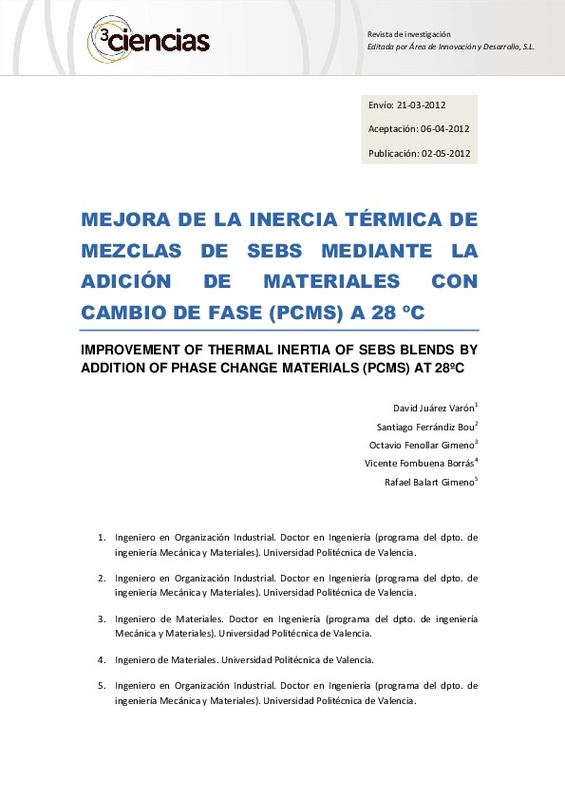JavaScript is disabled for your browser. Some features of this site may not work without it.
Buscar en RiuNet
Listar
Mi cuenta
Estadísticas
Ayuda RiuNet
Admin. UPV
Mejora de la inercia térmica de mezclas de sebs mediante la adición de materiales con cambio de fase (PCMs) a 28 ºC
Mostrar el registro completo del ítem
Juárez Varón, D.; Ferrándiz Bou, S.; Fenollar Gimeno, OÁ.; Fombuena Borrás, V.; Balart Gimeno, RA. (2012). Mejora de la inercia térmica de mezclas de sebs mediante la adición de materiales con cambio de fase (PCMs) a 28 ºC. 3c Tecnologia. (1):48-66. http://hdl.handle.net/10251/33494
Por favor, use este identificador para citar o enlazar este ítem: http://hdl.handle.net/10251/33494
Ficheros en el ítem
Metadatos del ítem
| Título: | Mejora de la inercia térmica de mezclas de sebs mediante la adición de materiales con cambio de fase (PCMs) a 28 ºC | |
| Otro titulo: |
|
|
| Autor: | ||
| Entidad UPV: |
|
|
| Fecha difusión: |
|
|
| Resumen: |
[EN] In this work, microencapsulated phase change materials (PCMs) with a melting temperature
of 28 ºC have been used to improve thermal inertia phenomena on an elastomeric matrix of
styrene-ethylene/butylenes-styrene ...[+]
[ES] Se han empleado en este trabajo materiales microencapsulados con cambio de fase (PCMs) con el objetivo de mejorar la inercia térmica en una matriz elastomérica de estirenoetileno/butileno-estireno (SEBS). La cantidad ...[+]
|
|
| Palabras clave: |
|
|
| Derechos de uso: | Reserva de todos los derechos | |
| Fuente: |
|
|
| Editorial: |
|
|
| Versión del editor: | http://www.3ciencias.com | |
| Código del Proyecto: |
|
|
| Agradecimientos: |
|
|
| Tipo: |
|







